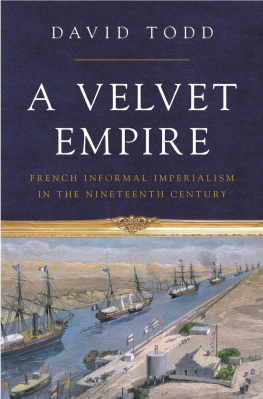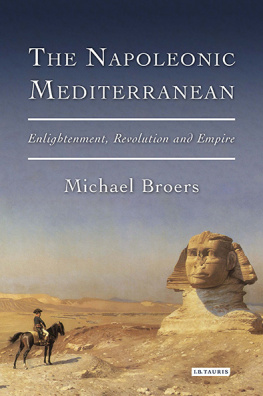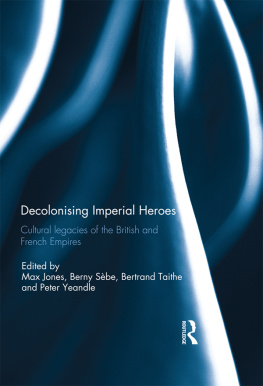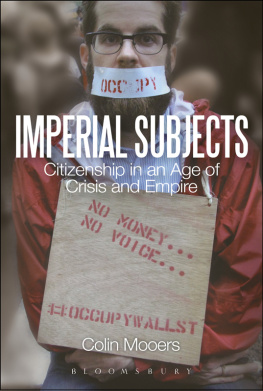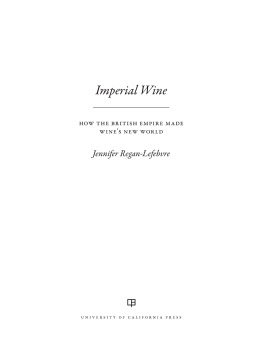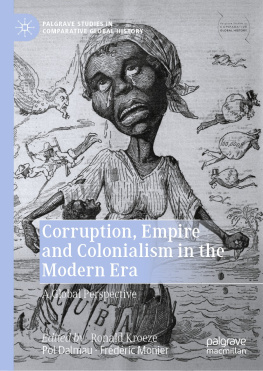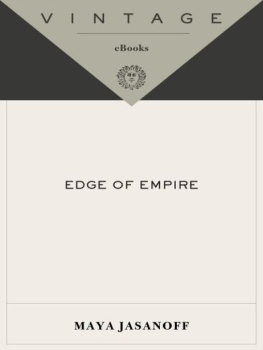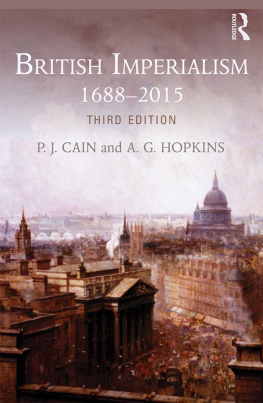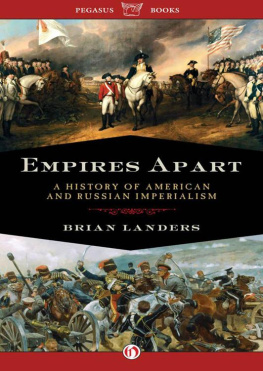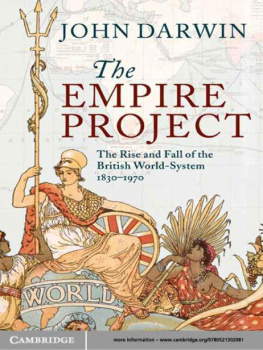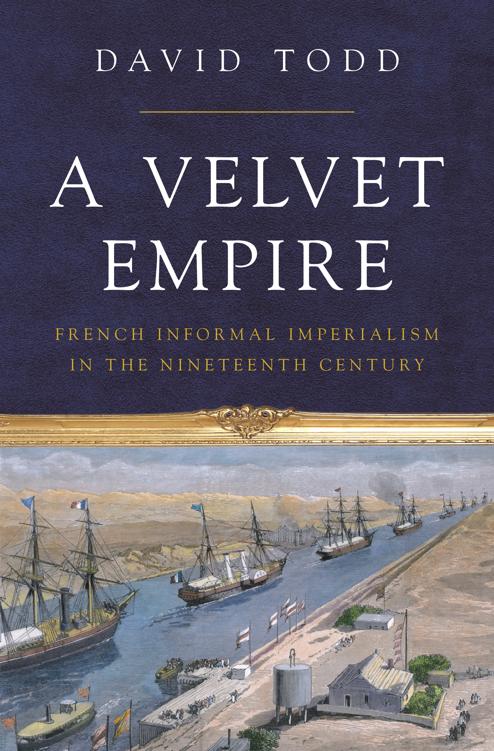
HISTORIES OF ECONOMIC LIFE
Jeremy Adelman, Sunil Amrith, Emma Rothschild, and Francesca Trivellato, Series Editors
A Velvet Empire: French Informal Imperialism in the Nineteenth Century by David Todd
Making It Count: Statistics and Statecraft in the Early Peoples Republic of China by Arunabh Ghosh
Empires of Vice: The Rise of Opium Prohibition across Southeast Asia by Diana S. Kim
Pirates and Publishers: A Social History of Copyright in Modern China by Fei-Hsien Wang
Sorting Out the Mixed Economy: The Rise and Fall of Welfare and Developmental States in the Americas by Amy C. Offner
Red Meat Republic: A Hoof-to-Table History of How Beef Changed America by Joshua Specht
The Promise and Peril of Credit: What a Forgotten Legend about Jews and Finance Tells Us about the Making of European Commercial Society by Francesca Trivellato
A Peoples Constitution: The Everyday Life of Law in the Indian Republic by Rohit De
A Local History of Global Capital: Jute and Peasant Life in the Bengal Delta by Tariq Omar Ali
Copyright 2021 by Princeton University Press
Requests for permission to reproduce material from this work should be sent to
Published by Princeton University Press
41 William Street, Princeton, New Jersey 08540
6 Oxford Street, Woodstock, Oxfordshire OX20 1TR
press.princeton.edu
All Rights Reserved
Library of Congress Cataloging-in-Publication Data
Names: Todd, David, 1978 author.
Title: A velvet empire : French informal imperialism in the nineteenth century / David Todd.
Description: Princeton ; Oxford : Princeton University Press, [2021] | Series: Histories of economic life | Includes bibliographical references and index.
Identifiers: LCCN 2020022660 (print) | LCCN 2020022661 (ebook) | ISBN 9780691171838 (hardback) | ISBN 9780691205342 (ebook)
Subjects: LCSH: FranceForeign relations19th century. | FrancePolitics and government19th century. | FranceColoniesHistory19th century. | FranceForeign economic relations19th century. | FranceCommerceHistory19th century.
Classification: LCC DC252 .T63 2021 (print) | LCC DC252 (ebook) | DDC 325/.32094409034dc23
LC record available at https://lccn.loc.gov/2020022660
LC ebook record available at https://lccn.loc.gov/2020022661
Version 1.0
British Library Cataloging-in-Publication Data is available
Editorial: Eric Crahan, Priya Nelson, and Thalia Leaf
Production Editorial: Natalie Baan
Jacket Design: Karl Spurzem
Jacket art: (top) Shutterstock; (bottom) Opening of the Suez Canal on Nov. 17, 1869. At the invitation of the Khedive Ismail, the French empress Eug nies imperial yacht led the procession of ships opening the canal. 1869 engraving with 2011 color / Everett Collection Inc. / Alamy Stock Photo
For my mother
CONTENTS
Acknowledgements ix
List of Abbreviations xi
Introduction
Forgotten Empire
Counter-Revolutionary Empire
Collaborative Empire
Empire without Sovereignty: The Political Economy of French Informal Imperialism
Talleyrands Imperial Vision
The Invention of Neo-Colonialism
Celebrating European Civilization
Saint-Simonian Economics and Empire
A French Imperialism of Free Trade
A Turn to Formal Empire
Algeria, Informal Empire Manqu
The Ideological Origins of French Algeria
The Bourbon Restorations Colonial Scheme
The Politics and Geopolitics of the 1830 Expedition
Collaboration with Abd al-Qadir
Economic Failure
The Arab Kingdom, a Failed Revival of Informal Empire
Champagne Capitalism: The Commodification of Luxury and the French Empire of Taste
The Acceleration of Globalization in France
The Banality of Luxury
Foundations of Neo-Courtly Economic Growth
The Global Commodification of French Taste
The Imperialism of the Empire of Taste
Conquest by Money: The Geopolitics and Logistics of Investment Colonization
The Global Scale of French Foreign Lending
Debt and Empire in French Political Economy
The Haitian Origins of French Capital Exports
Conquest by Money in the Middle East
Financial Imperial Overreach in Mexico
Agents of Informal Empire: French Expatriates and Extraterritorial Jurisdiction in Egypt
French Imperial Expatriates
The Colonys Influence
A French Legal Borderland
The Imperial Profits of Extraterritoriality
The Crisis of French Extraterritoriality in Egypt
End of French Ascendancy
Conclusion
Bibliography
Index
ACKNOWLEDGEMENTS
THIS BOOK originates in a conversation with the late Christopher Bayly, who, around ten years ago, asked me a series of stimulating questions about the place of France in the world in the nineteenth century. I am still deeply grateful for the way in which his insightful suggestions redirected my research interests towards the global and imperial dimension of French history. The book also owes a lot, more than I could express here, to the pioneering scholarship and warm encouragement of Emma Rothschild.
As the project developed, it benefited from the suggestions and criticisms of too many scholars for me to recall, let alone list here. Still, I would especially like to thank Jeremy Adelman, Sunil Amrith, David Armitage, Andrew Arsan, David Bell, Maxine Berg, H l ne Blais, John Brewer, Martin Daunton, Nicolas Delalande, Quentin Deluermoz, James Fichter, Michael Goebel, Jerome Greenfield, Jean H brard, Simon Jackson, Harold James, Fran ois Jarrige, Colin Jones, Michael Kwass, Michael Ledger-Lomas, Claire Lemercier, Renaud Morieux, William Nelson, Patrick OBrien, Ozan Ozavci, Gabriel Paquette, Jennifer Pitts, Lucy Riall, Anne-Isabelle Richard, Pernille R ge, Stephen Sawyer, John Shovlin, Pierre Singarav lou, Melissa Teixeira, Frank Trentmann, Francesca Trivellato, Alexia Yates, and the late Donald Winch, because I can still associate each of them with distinct major or minor points I make in the book. I am also very grateful to the organizers of several seminars and conferences where I presented aspects of the projectat the Casa de Velasquez in Madrid, the University of Cambridge, the Conservatoire National des Arts et M tiers, the cole Normale Sup rieure, the cole des Hautes tudes en Sciences Sociales, the European University Institute in Florence, the Freie Universit t in Berlin, Harvard University, the Institute of Historical Research in London, Johns Hopkins University, Princeton University, Utrecht University and Warwick University. The enthusiasm and skepticism I encountered at these presentations inspired me, in equal measure, to complete the project.
I would also like to thank my students at Kings College London for having put up with me for the past nine years and for having often served as the first, semi-captive audience of several aspects of the books argument. I am especially grateful to two PhD students, Laura Forster and Leonard Hodges, whose research influenced my own understanding of nineteenth-century France. I cannot thank my colleagues in Kings History Department warmly enough for making it such an exciting and friendly environment in which to research and teach.
All historical research owes more to the help of librarians and archivists than meets the eye, and this work is no exception. I feel especially indebted to Sylvie Prudon from the Archives Diplomatiques in La Courneuve, who helped me navigate the archival series of French consulates in the Middle East. The finished product of historical research owes an enormous deal to publishers, and I was very impressed by the professionalism and kindness of all those I have worked with at Princeton University Press, especially Brigitta van Rheinberg, Amanda Peery and Eric Crahan. I also wish to thank the Leverhulme Trust for funding an extended sabbatical leave, from 2013 to 2015, during which time a great deal of the original research for the project was completed.
Next page
